Intro
Identify 7 Covid symptoms, including fever, cough, and fatigue. Learn about coronavirus signs, respiratory issues, and pandemic-related health concerns to stay informed and protected.
The COVID-19 pandemic has significantly impacted the world, affecting millions of people globally. The virus, caused by the SARS-CoV-2 strain, has led to a surge in hospitalizations, deaths, and widespread disruptions to economies and societies. Understanding the symptoms of COVID-19 is crucial for early detection, treatment, and prevention of further transmission. In this article, we will delve into the 7 COVID symptoms, their severity, and what to expect if you contract the virus.
As the virus continues to mutate and evolve, it's essential to stay informed about the latest developments and research findings. The COVID-19 symptoms can range from mild to severe, and in some cases, people may not exhibit any symptoms at all. However, it's crucial to recognize the common symptoms to seek medical attention promptly. The 7 COVID symptoms include fever, cough, shortness of breath, fatigue, headache, sore throat, and diarrhea. These symptoms can vary in severity and may develop over time.
The World Health Organization (WHO) and the Centers for Disease Control and Prevention (CDC) have provided guidelines for identifying and managing COVID-19 symptoms. According to these guidelines, people with COVID-19 may experience a range of symptoms, from mild to severe. In severe cases, COVID-19 can lead to pneumonia, acute respiratory distress syndrome, and even death. Therefore, it's vital to monitor your symptoms closely and seek medical attention if you experience any of the following: difficulty breathing, chest pain, or severe headache.
Understanding the 7 Covid Symptoms
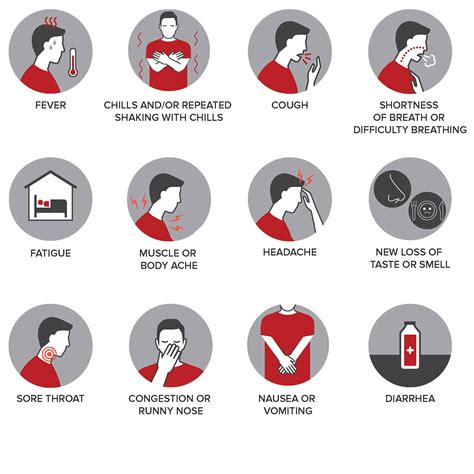
The 7 COVID symptoms can be categorized into two groups: respiratory and non-respiratory symptoms. The respiratory symptoms include cough, shortness of breath, and sore throat, while the non-respiratory symptoms include fever, fatigue, headache, and diarrhea. It's essential to recognize that some people may experience additional symptoms, such as loss of appetite, nausea, or vomiting.
Respiratory Symptoms
The respiratory symptoms of COVID-19 can range from mild to severe. A cough is one of the most common symptoms, and it can be dry or productive. Shortness of breath is another common symptom, which can be mild or severe. In severe cases, people may experience difficulty breathing, which can lead to respiratory failure. Sore throat is also a common symptom, which can be accompanied by a runny nose or congestion.Non-Respiratory Symptoms
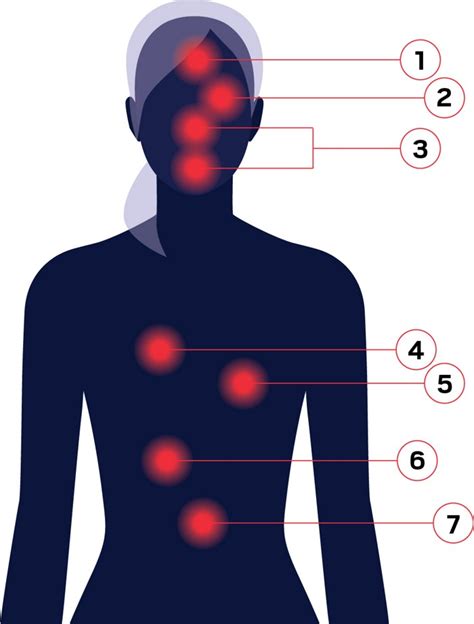
The non-respiratory symptoms of COVID-19 can be just as debilitating as the respiratory symptoms. Fever is one of the most common symptoms, which can range from mild to severe. Fatigue is another common symptom, which can be accompanied by muscle or body aches. Headache is also a common symptom, which can be mild or severe. Diarrhea is another symptom, which can be accompanied by nausea or vomiting.
Managing Covid Symptoms
Managing COVID-19 symptoms requires a combination of self-care, medical treatment, and preventive measures. If you experience any of the 7 COVID symptoms, it's essential to stay hydrated, rest, and seek medical attention promptly. Your healthcare provider may prescribe medications to manage your symptoms, such as pain relievers or cough suppressants. In severe cases, hospitalization may be necessary to provide oxygen therapy, respiratory support, or other life-saving interventions.Covid Prevention and Precautions
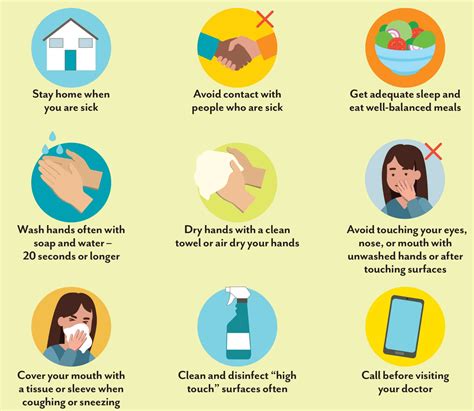
Preventing the spread of COVID-19 requires a combination of individual and collective efforts. The WHO and CDC recommend wearing masks, practicing social distancing, and frequent handwashing to reduce the transmission of the virus. Vaccination is also a critical component of COVID-19 prevention, as it can help build herd immunity and reduce the severity of symptoms.
Vaccination and Herd Immunity
Vaccination is a crucial aspect of COVID-19 prevention, as it can help build herd immunity and reduce the severity of symptoms. Herd immunity occurs when a sufficient percentage of the population is immune to the virus, making it difficult for the virus to spread. The COVID-19 vaccines have undergone rigorous testing and have been proven to be safe and effective in preventing severe illness and hospitalization.Covid Treatment and Recovery

Treating COVID-19 requires a combination of medical interventions, self-care, and supportive care. Your healthcare provider may prescribe medications to manage your symptoms, such as antiviral medications or corticosteroids. In severe cases, hospitalization may be necessary to provide oxygen therapy, respiratory support, or other life-saving interventions. Recovery from COVID-19 can take several weeks or even months, depending on the severity of symptoms and individual factors.
Recovery and Rehabilitation
Recovering from COVID-19 requires a combination of rest, self-care, and supportive care. It's essential to stay hydrated, eat a balanced diet, and engage in gentle exercises to improve cardiovascular health and reduce fatigue. Rehabilitation may be necessary for people who experience long-term effects, such as respiratory problems or cognitive impairment.Covid Mental Health and Wellbeing
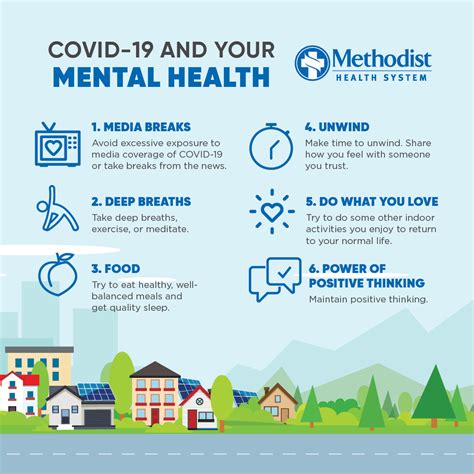
The COVID-19 pandemic has had a significant impact on mental health and wellbeing, with many people experiencing anxiety, depression, or post-traumatic stress disorder (PTSD). It's essential to prioritize mental health and wellbeing, engage in stress-reducing activities, and seek support from mental health professionals if needed.
Mental Health Support and Resources
Mental health support and resources are critical for people affected by COVID-19. The WHO and CDC provide guidelines and resources for mental health support, including counseling, therapy, and support groups. It's essential to reach out to mental health professionals, friends, and family members for support and connection.Covid Long-Term Effects
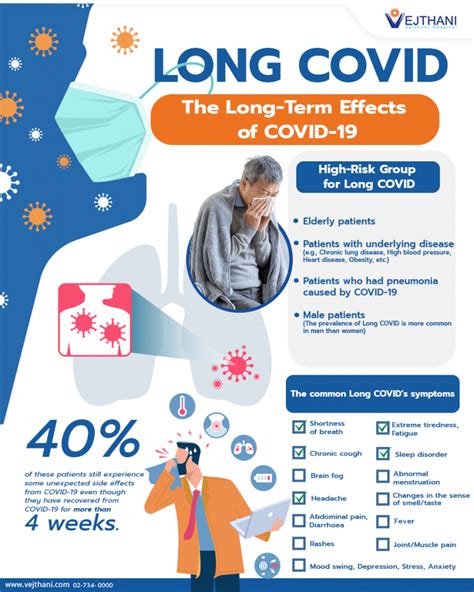
The long-term effects of COVID-19 are still being researched and understood. However, it's clear that some people may experience long-term effects, such as respiratory problems, cardiovascular disease, or cognitive impairment. It's essential to monitor your health closely and seek medical attention if you experience any persistent or severe symptoms.
Long-Term Care and Support
Long-term care and support are critical for people affected by COVID-19. It's essential to work with your healthcare provider to develop a personalized care plan, engage in rehabilitation programs, and prioritize self-care and stress reduction.Covid Research and Developments
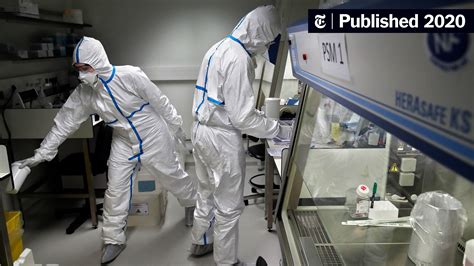
The COVID-19 pandemic has led to a surge in research and developments, with scientists and researchers working tirelessly to understand the virus, develop effective treatments, and create vaccines. It's essential to stay informed about the latest developments and research findings to stay ahead of the curve.
Emerging Trends and Technologies
Emerging trends and technologies, such as artificial intelligence, machine learning, and genomics, are being used to combat COVID-19. These technologies have the potential to revolutionize the way we diagnose, treat, and prevent COVID-19, and it's essential to stay informed about the latest developments.What are the 7 COVID symptoms?
+The 7 COVID symptoms include fever, cough, shortness of breath, fatigue, headache, sore throat, and diarrhea.
How can I prevent COVID-19?
+You can prevent COVID-19 by wearing masks, practicing social distancing, frequent handwashing, and getting vaccinated.
What is the treatment for COVID-19?
+The treatment for COVID-19 includes a combination of medical interventions, self-care, and supportive care, such as antiviral medications, corticosteroids, and oxygen therapy.
Can I recover from COVID-19 at home?
+Yes, you can recover from COVID-19 at home if your symptoms are mild. However, it's essential to monitor your symptoms closely and seek medical attention if you experience any severe or persistent symptoms.
What are the long-term effects of COVID-19?
+The long-term effects of COVID-19 are still being researched and understood. However, some people may experience long-term effects, such as respiratory problems, cardiovascular disease, or cognitive impairment.
In conclusion, understanding the 7 COVID symptoms is crucial for early detection, treatment, and prevention of further transmission. By staying informed about the latest developments and research findings, prioritizing self-care and stress reduction, and seeking medical attention promptly, we can work together to combat COVID-19 and build a healthier, safer world. If you have any questions or concerns about COVID-19, please don't hesitate to reach out to your healthcare provider or leave a comment below. Share this article with your friends and family to help spread awareness and stay informed about the latest developments in COVID-19 research and treatment.
